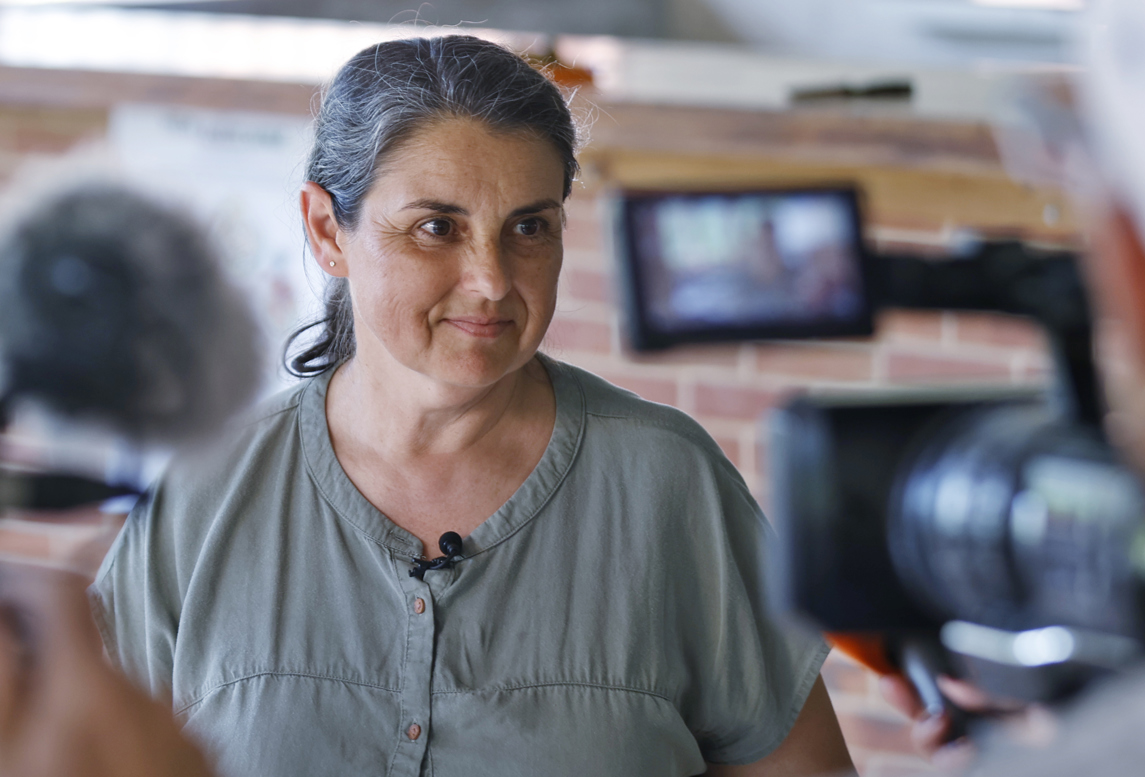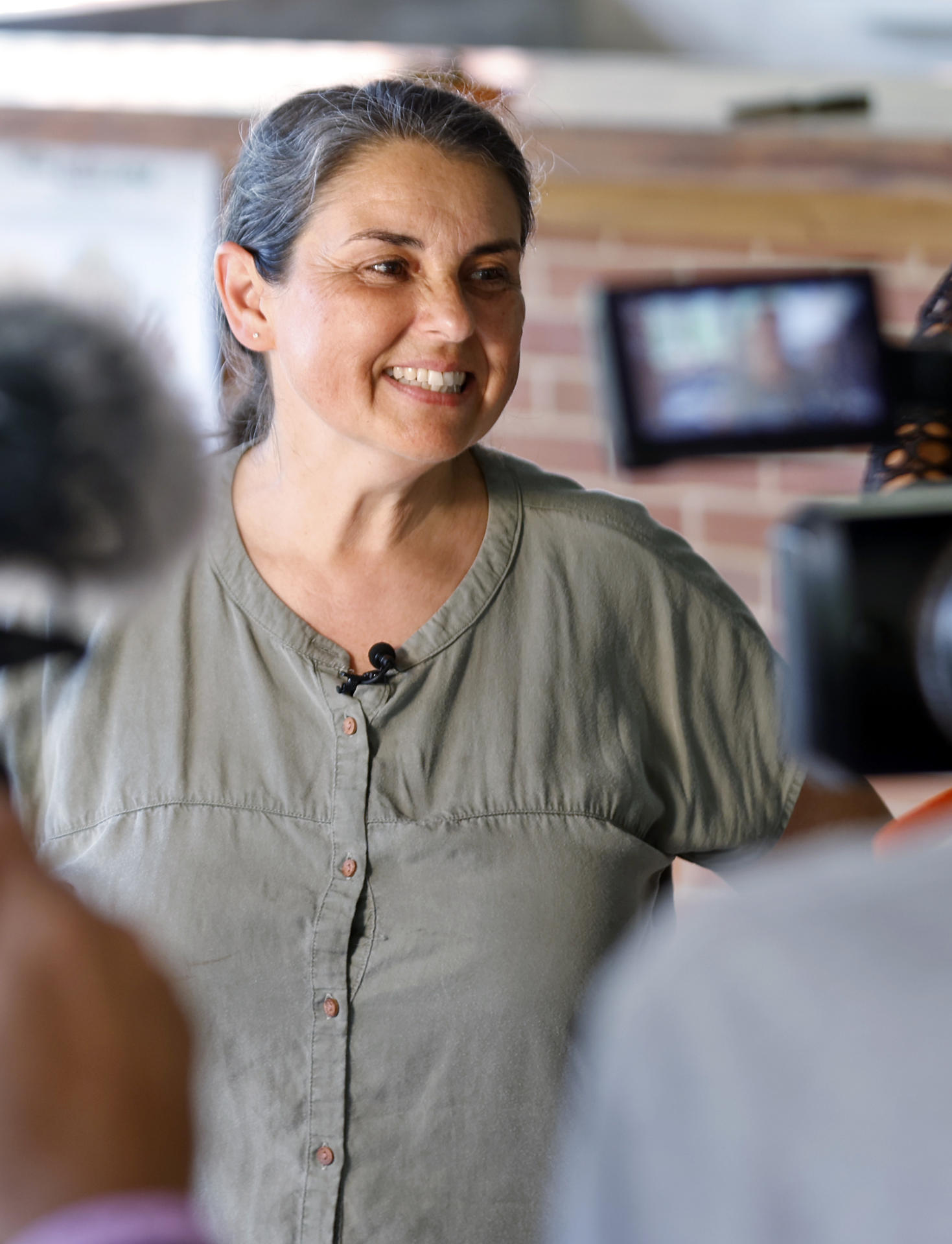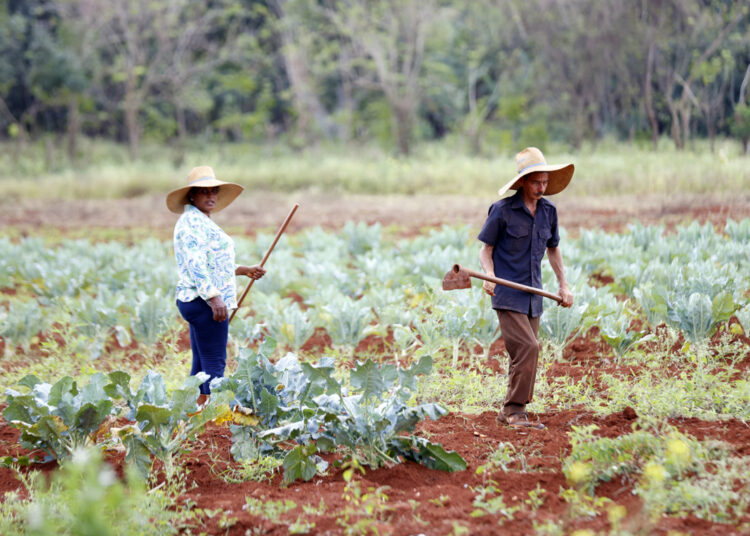By Laura Bécquer
Modifying the eating habits of Cubans amid the current food shortage with criteria of health and local availability is the purpose of the nutritional education project promoted since 2017 by the Spanish-French entrepreneur María Paco in Cuba.
“Many laughed when I presented this project to diversify the Cuban plate and learn to eat healthier: with vegetables, without sugar, and without the ‘main course’ as they call meat here,” she tells EFE from her Doña María agroecological farm, located on the outskirts of Havana.
Paco says that she left her job in France as a fruit seller for an international company and went to Cuba for the first time in 2014. At that time, “she was struck by the lack of knowledge among Cubans about the benefits of nutritional education and more in a country where there is so much scarcity,” she explained.
“My parents and grandparents were farmers, so they instilled in me the idea of taking advantage of everything that comes from the land and not throwing anything away,” says this entrepreneur with Spanish roots.

Her “alternative” menu ranges from an eggplant spread on bread, salads with lentils, cabbage, and chili; vegetarian pizzas with basil, oregano, rosemary, or parsley — without the typical cheese or tomato puree —, to replacing carbonated and chemical soft drinks with fruits like bananas, she explained.
“I started with the same people who helped me on the farm. At first, they gave me a strange look when, instead of chicken, I offered them yellow rice with only vegetables or gave them a snack with toast, eggplant paste, and tomato juice. They later assimilated the change in their meals and incorporated the same things they harvested here on the farm into the dish,” she said.
Her project has taken a turn in the last three years, when the serious crisis affecting the island has caused a shortage of basic supplies, including milk and flour, mainly due to the lack of foreign currency, in a country that imports 80% of what it consumes.

A school farm
Upon becoming a local development project in 2017, Paco’s initiative signed an agreement with the Juan Tomás Roig primary school — for children between 5 and 11 years old — in the El Cacahual community to talk about “nutritional education.”
“The idea was for the children to come once a month to cook, to learn, to eat vegetables, to learn that they can eat healthier and easier with what they have on hand at home and do without a little junk food,” she commented.
“They value the work of the farmer, they learn to collect their vegetables, prepare them, and then they eat what they themselves make,” she explained.
The experiences of the children participating in María’s project were collected in the audiovisual series: “Cocinar, un juego para todos” (Cooking, a game for everyone), sponsored by the World Food Program (WFP), the United Nations Educational, Scientific and Cultural Organization (UNESCO) and the United Nations International Children’s Emergency Fund (UNICEF).
The series of ten 8-minute programs contains its own recipe with the products grown on the Paco farm, as explained by the French director Dominique Clément during the recording of one of them just a few days ago in Havana.

Changing habits
Paco highlights that her project gained more value when the Food Sovereignty Law was approved in 2022 because the law “defends taking advantage of what we can grow from an approach that also respects nature.”
This legislative text proposes the strengthening of municipal autonomy, reducing losses due to food waste and promoting the practice of sustainable agriculture on agroecological bases, among other issues.
Paco herself recognizes that “in Cuba, the food is very good, but sometimes it disappears and becomes a headache for many parents. That’s why I try from my space to instill in them that to eat well, you don’t need chicken, for example.”
However, she admitted that “the most difficult thing has been to change the mentality and habits of Cubans: they still laugh when I tell them that they can eat without ‘main course’.”











Here in the US we have the Food Industrial Complex. It places profit above health. We get manufactured nutritionally depleted food in pretty packages. I hope that Cuban Socialism can do better than this.